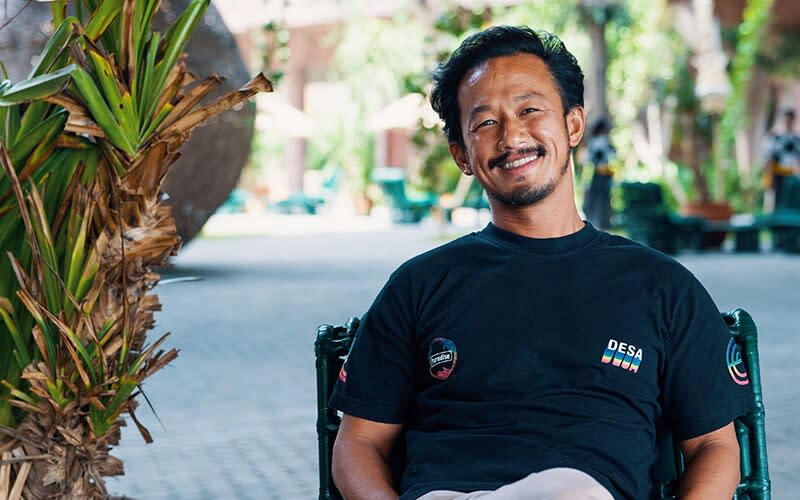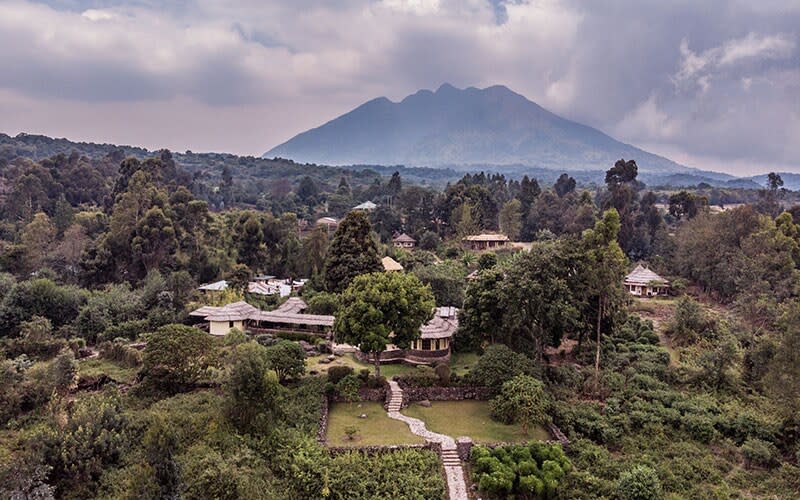How hotels can create sustainable change for communities beyond lockdown

It was during lockdown that Ronald Akili was struck by just how reliant Bali is on tourism. Despite recording fewer than 2,500 confirmed cases of Covid-19 and just 27 deaths, the pandemic still managed to bring the country’s economy to a standstill, with no tourists able to visit.
Akili, who is Indonesian and was born in Jakarta, founded the Potato Head group of hotels 10 years ago, and is currently based at its newest Bali complex, Desa Potato Head. The property includes the hip Potato Head Studios hotel and plant-based restaurant Tanaman, which both opened in January of this year. However, along with its neighbours in busy Seminyak (including music industry hotspot Potato Head Beach Club), it has been closed since the world ground to a halt in March. Alarmed at how quickly the country’s main source of income could be switched off by an external force, he started thinking about what he could do to help, both now and in the future, and came up with the idea of a community food project called Wasted Wheels.
Over the next few months, a team initially made up of hotel staff working as volunteers will create two fully functional syntropic farms across the island, with the first harvest hopefully ready in August. The team will then be able to provide 1,000 free meals per week to those who need them on the island, as well as staff. A 'farmer to friends' initiative will also be launched, selling produce boxes at cost price to the community and supporting the farmers who will work on the sites. The meals and boxes will be delivered by a bio bus that runs on old cooking oil and food will be wrapped in banana leaves as opposed to plastic.

Akili hopes to create as many jobs as possible, particularly for those unemployed by the collapse of the hospitality industry. Australians comprise the biggest single visitor group to the country; if their borders remain closed until 2021 as appears likely, this will be a further blow to Bali. The ultimate aim is to hand the project over to be run by the community, for the community.
“We wanted to start a project that would last for at least the next couple of years, rather than just the next couple of months. People will continue to feel the impact of Covid-19 for years to come as businesses close down and unemployment rises, so we wanted to [work towards] a solution that is more sustainable, gives people hope and brings back some of the joy in life, while acquiring new skill sets. And everyone connects with food,” said Akili.
Sustainability is something Praveen Moman had in mind when he established the Volcanoes Safaris Partnership Trust in 2009. Moman founded Volcanoes Safaris back in 1997, returning to Uganda, where he was born, after he and his family had been forced to leave decades previously by Idi Amin. The company, which has four lodges, three in Uganda and one in Rwanda, helped kick-start gorilla tourism in 2004 after the Rwandan genocide and has been heavily involved in conserving the great apes. Moman soon came to realise though that “if you want to look after wildlife you have to look after people too”.

He explained to me how national park establishment, while enhancing conservation efforts, has historically often come at the expense of the displacement of indigenous people, as was the case with the Batwa tribe in Uganda in the early 1990s. VSPT has made this marginalised community central to its work, purchasing 10 acres of land to create a permanent village with homes, a community centre and land for agricultural and recreational use, as well as running a bar that provides training in hospitality for young people.
Lockdown has posed considerable challenges to this work, not least because VSPT is funded via bookings and donations from tourists. Community food drops have been running, but Moman cited the recent killing of Rafiki, a beloved 25-year-old male silverback gorilla, as a tragic reminder of the urgency in some economies for tourism to restart in earnest. Four suspected poachers have been arrested in connection with the event, which took place in Bwindi Impenetrable Forest National Park. “One of the reasons this happened is because tourists are not going into the park, so patrols have been reduced. This is a classic example of why sensitive and controlled tourism is essential to protect the gorillas and bring income to local people,” he said.
Back in Bali, Desa Potato Head is now looking to the end of the year for reopening, including the brand new Studio Eksotika nightclub and Wild Life Archive exhibition space, which had both been scheduled to open in May before the pandemic took hold.
Reopening too early and then being forced to close again would be a blow Akili is keen to avoid. He and his staff have plenty to be getting on with in the meantime, though, with their project under way, navigating the challenges presented by social distancing in a physical labour setting, along with delays sourcing supplies and more. Looking to the future has brought some sense of calm for them too. “This is about the long-term, not patchwork. We didn’t want just another short-term, emergency project. And that’s not what this feels like. It doesn’t feel like disaster,” he said.
Rooms at Potato Head Studios in Bali from $150 (£119) per night (00 62 361 302 9999; potatohead.co). For more information on the project, visit wastedwheels.com. Mount Gahinga Lodge in Uganda is available through Aardvark Safaris (01980 849160; aardvarksafaris.co.uk) from £630 per person per night, full board. For more information on VSPT, visit volcanoessafaris.com/community.


